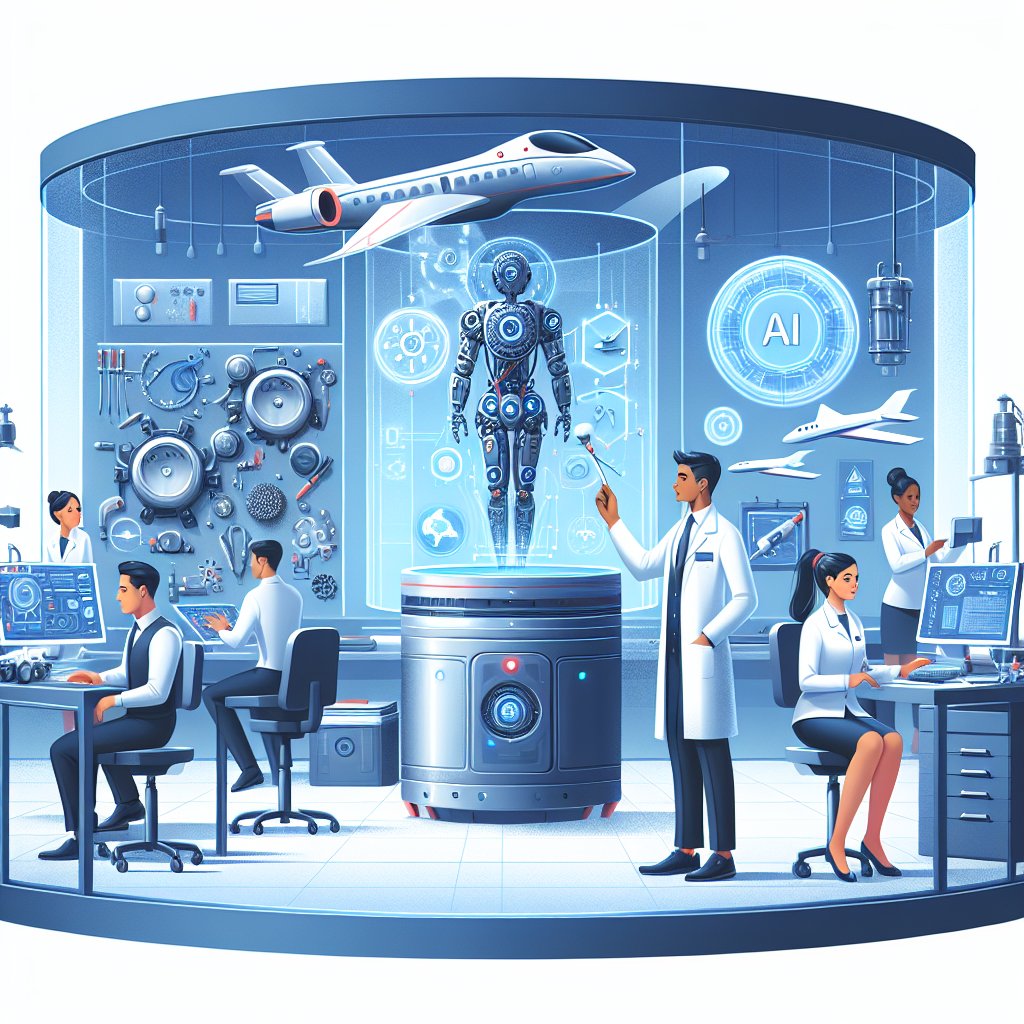The aviation industry stands on the cusp of a technological transformation as Artificial Intelligence (AI) progresses, sparking a debate among professionals about the future role of aerospace engineers. As the industry explores the intricate symbiosis between human expertise and machine intelligence, it becomes crucial to assess what the landscape for aerospace engineers will look like in an AI-driven future, examining the balance between AI augmentation and the irreplaceable ingenuity of skilled engineers.
Use of AI for Aerospace Engineers
The integration of Artificial Intelligence (AI) into the aerospace industry has marked a significant evolution in how aerospace engineers approach design, testing, and maintenance of aircraft and spacecraft. AI-powered tools are now instrumental in the creation of advanced simulation models, which enable engineers to predict and analyze the performance of aerospace components under various conditions. This innovative use of AI not only improves the accuracy and efficiency of the engineering process but also propels the development of new materials and technologies, thereby enhancing the overall safety and reliability of air and space travel.
Aerospace engineers are leveraging AI to revolutionize the field of flight operations as well. Sophisticated algorithms assist in optimizing flight paths, reducing fuel consumption, and managing air traffic with heightened precision. Moreover, AI facilitates the monitoring of spacecraft and satellites, providing real-time data analysis that is crucial for mission success and the prevention of costly failures. The collaboration between AI and aerospace experts is paving the way for autonomous systems in piloting and spacecraft navigation, promising a future where AI’s limitless potential can be harnessed to push the boundaries of human discovery and transportation.
The potential for AI to replace Aerospace Engineers
The aviation industry is on the brink of a transformation, poised to leverage artificial intelligence (AI) in ways that could redefine aerospace engineering as we know it. Aerospace engineers, known for their expert skills in designing aircraft, spacecraft, satellites, and missiles, are now encountering the burgeoning capabilities of AI algorithms capable of performing complex simulations, optimizing design processes, and even automating testing protocols. The incursion of AI into this high-tech field is not just revolutionizing the tools and methodologies employed by aerospace engineers but also raising questions about the future role of human expertise in the face of ever-advancing digital counterparts.
As businesses and governments alike push for more efficient, safer, and cost-effective aerospace solutions, the potential for AI to replace certain functions traditionally performed by aerospace engineers is a topic of intense discussion. AI systems are demonstrating their proficiency in tasks ranging from data analysis to predictive maintenance, potentially streamlining operations and reducing the margin of error attributed to human oversight. With machine learning models consistently improving and self-correcting, the anticipation is growing around AI’s role in not only assisting aerospace engineers but also possibly substituting some of their responsibilities, igniting debates on the evolving nature of engineering roles and the future of work in this high-stakes industry.
How can AI enhance the aerospace engineering design process?
The integration of Artificial Intelligence (AI) into aerospace engineering is revolutionizing the way aircraft and spacecraft are designed. At the core of this evolution is AI’s ability to process vast amounts of data at speeds unattainable by human engineers. By harnessing advanced algorithms and machine learning techniques, AI systems can rapidly explore a multitude of design variations, optimize aerodynamic performance, and predict potential issues before they arise. This results not only in a significant reduction in design time and cost but also in the creation of innovative, high-performance aerospace components that might be beyond the scope of traditional engineering methods.
AI’s predictive analytics and simulation capabilities are particularly invaluable in the iterative process of aerospace design. Engineers can utilize AI to assess the environmental impact, improve fuel efficiency, and ensure safety by running simulations that predict how new designs will perform under various conditions. Moreover, AI-driven generative design tools enable engineers to explore unconventional geometries and materials, pushing the boundaries of what is possible in aerospace engineering. These intelligent systems learn from each iteration, continually refining the design process to develop optimized, robust, and sustainable aerospace technologies for the future.
Will AI improve safety and efficiency in aerospace engineering?
The integration of Artificial Intelligence (AI) is poised to revolutionize aerospace engineering by enhancing safety measures and operational efficiency. Aerospace companies are deploying AI technologies to interpret data from aircraft sensors and monitor systems in real-time, which helps in the early detection of potential mechanical failures and mitigates risk. By processing vast amounts of data much faster than human capabilities allow, AI can predict maintenance needs and optimize repair schedules, ensuring that aircraft spend less time on the ground and more time in the air, operating safely. Additionally, AI-driven simulations and modeling are providing aerospace engineers with the tools to design and test aircraft systems under a variety of conditions, far beyond what is feasible with traditional methods, to ensure that aircraft can withstand extreme stress and maintain structural integrity.
What reskilling opportunities may arise for aerospace engineers due to AI?
The advent of artificial intelligence (AI) in the aerospace industry is not just a harbinger of cutting-edge innovation, but it also opens a new horizon of reskilling opportunities for aerospace engineers. As AI begins to streamline complex processes, from design to traffic management, aerospace engineers are finding it crucial to adapt and enhance their skills to stay relevant in this evolving landscape. This technological evolution sparks a requirement for adeptness in AI-focused disciplines such as machine learning, algorithm design, and data analytics, offering aerospace engineers a chance to deepen their technical expertise and engage with the tools and methodologies shaping the future of aviation.







